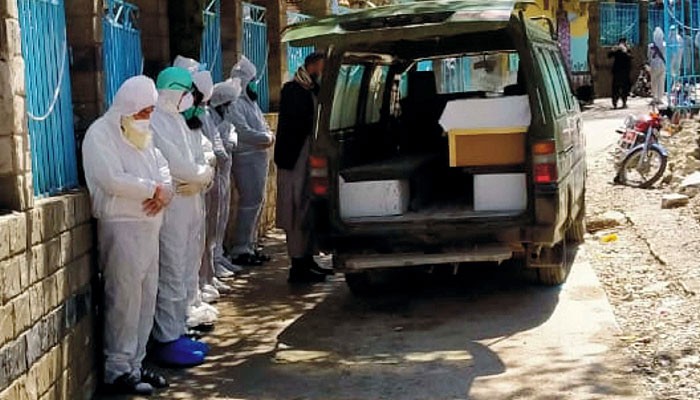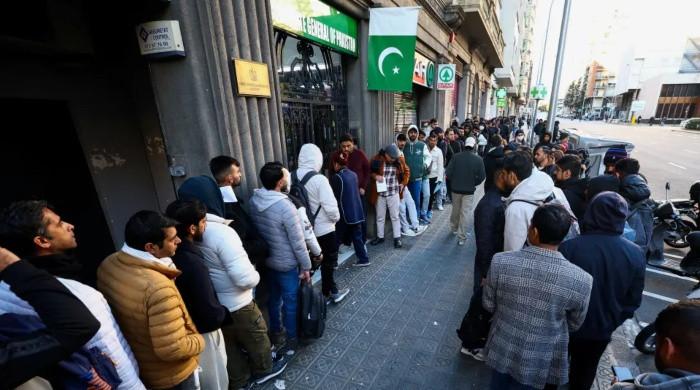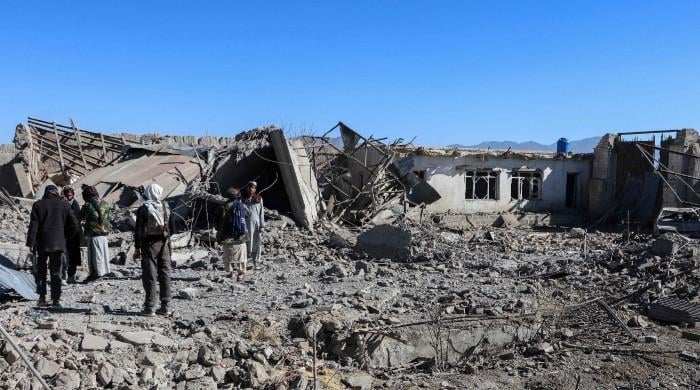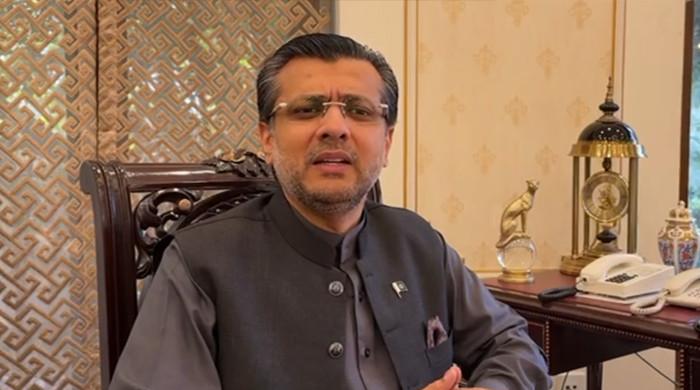Health experts 'seriously concerned' over coronavirus re-infections in Pakistan
A rising number of COVID-19 re-infection cases has started ringing alarm bells among health professionals as several cases are reported in major cities of Pakistan
December 13, 2020

The first death from coronavirus re-infection in Pakistan was reported in October this year.
The rising number of coronavirus re-infection cases have been reported in major cities of Pakistan
-
Policymakers and planners are not yet worried, arguing that the COVID-19 reinfection was still something that was not fully established.
KARACHI: The health professionals have raised serious concerns over the growing incidence of coronavirus re-infections at various health facilities in Pakistan – where several patients have been reported having a repeated COVID-19 infection with severe illness a second time.
The first death from coronavirus re-infection in Pakistan was reported in October this year when a senior leader of the PPP, Rashid Rabbani, passed away after contracting the viral infection again after testing positive for the disease in May.
Read more: Second coronavirus wave more lethal, warns Pakistan Medical Association
Earlier perceived as a rare phenomenon, a rising number of coronavirus re-infection cases have started ringing alarm bells among health professionals in major cities of the country where dozens of cases of the coronavirus re-infection have been reported so far, The News reported Sunday.
On the other hand, policymakers and planners are not yet worried about it, arguing that the re-infection with the coronavirus was still something that was not fully established and cannot be taken as a threat as of now.
'With more severity'
Officials at renowned hospitals including the Aga Khan University Hospital (AKUH), Dow University of Health Sciences (DUHS) and the Indus Hospital Karachi are fully convinced that people are getting re-infected with the novel coronavirus and reporting to the hospitals with the severity of the disease for the second time.
“This is true [re-infection with SARS-CoV-2]. We are seeing a number of re-infections. Putting it together in a paper, trying to finish it but keep finding new cases,” said Dr Faisal Mahmood, senior infectious diseases expert and physician at the AKUH, while talking to The News on Saturday.
When asked what the percentage of people coming to the AKUH with the coronavirus re-infection was, he replied: “No percentages possible as we are not systematically asking all the infected [about it].”
Dr Mahmood said their study on re-infection with COVID-19 was about to be completed and it would answer some of the questions people and experts have in their minds.
'Vitamin D and other preventive measures'
Meanwhile, another senior physician and renowned pulmonologist Prof Sohail Akhtar said it had been confirmed that people were getting re-infected with the virus and during the last one week, several cases of re-infection had come to his knowledge in Karachi let alone.
“One of our senior cardiologist friends is having re-infection and he is undergoing treatment due to severe symptoms. It is still not a widespread phenomenon but the cause of concern is that it is happening and people should keep it in mind that they can get re-infected if they stop taking precautionary measures,” Prof Akhtar explained.
Putting similar concerns forward, senior physician and expert associated with Dow University of Health Sciences (DUHS) Dr Tahir Hussain said there had been only one case in his experience so far where a patient, being a heart specialist himself, got the first proved infection in April and after recovery he was tested twice for COVID-19 and was negative, only to be later infected with the viral disease again.
When asked about the prevention and treatment of COVID-19, he regretted that centres treating the disease in Karachi and other cities of Pakistan were not giving due importance to vitamin D and its preventive and therapeutic role in dealing with the infectious disease.
Read more: Khyber Pakhtunkhwa reports its first case of reinfection with coronavirus
“Studies all around the world have proven that if your vitamin D level is less than 20, you are four times more likely to have a very serious disease and die from COVID-19,” he said, adding that he and many of his colleagues had been advising physicians to test for vitamin D deficiency in the Covid-19 patients and treat aggressively to save many lives.











